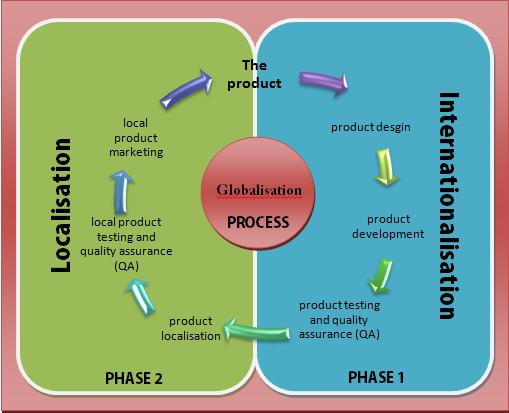World trade has nearly doubled in less than a decade and has increased staggeringly since World War II.  The world is knit together and connected by economic trade.¹ Economically successful countries take part in a global economic market and form of capital exchange.¹ Global trade has an extensive history and has been a major force in the history of humankind, as explained by William J. Bernstein in his novel "A Splendid Exchange".¹
The world is knit together and connected by economic trade.¹ Economically successful countries take part in a global economic market and form of capital exchange.¹ Global trade has an extensive history and has been a major force in the history of humankind, as explained by William J. Bernstein in his novel "A Splendid Exchange".¹
In economics, trade refers to the exchange of goods, where the ownerships of the goods being traded is transferred between the two parties. Thus, within the global context, international trade refers to the exchange of goods across international borders.
With the rise of globalization, where there are significant improvements in the field of telecommunications and transportation, international trade has grown significantly with this movement. In most countries, such as China, trade represents a significant portion of gross domestic product (GDP). GDP is one primary indicator used to gauge a country's economy.² Without international trade, countries would only receive goods which are created within their own domestic borders. Thus, globalization has helped international trading by facilitating not only the movement towards creating multinational corporations, but also aiding in the process of outsourcing. It is now evident that these things have a major impact in the international trade system.
In terms of international development, trade can be used to help economic development. Trade in fact has been predicted, by numerous economists, as being an important tool in the path of development. However, the main problem is that trade is not the solution to development, but rather an agent that will aid in it. Issues which may arise from over-reliance of international trade include limiting the chances of domestic infant industries to thrive which is also equally as important. So thus, it is important to find the right balance between domestic and international trade in terms of a country’s development.
History of global trade and economics
As Adam Smith (as pictured) explains in "The Wealth of Nations", humans are endowed with "a propensity to truck, barter and exchange one thing for another", meaning all humans have a tendency to participate in some form of market.¹ This, he writes, makes humans unique to all other species. Ancient Mesopotamia was rich in fertile soil and water, but lacked stone and wood for building, as well as various metals.¹ The Sumerians had surplus food to trade, so they could bargain for stone, wood, and metal.¹ In the Roman times, Egyptian grain, Greek wine, Spanish copper and silver, and many other Meditterranean commodities were ferried and traded.¹
Successions of trade, colonies, naval power and empires repeated itself with many other civilizations, like Venetians and Genoese, the Portuguese, the Dutch and the British. Rather than what was historically slaves and spices between traded and commodified, it is now oil.
Image sources:
1. Wikimedia
2. Wikimedia
References:
1. Gordon, John Steele. Silk, Spice, Gold and Destiny: Global History is Part of the Bargain. Retrieved May 6, 2014, from http://www.nytimes.com/2008/04/30/books/30gord.html?_r=0
2. Investopedia. What is GDP and why is it so important? Retrieved May 6, 2014, from http://www.investopedia.com/ask/answers/199.asp
© BrainMass Inc. brainmass.com June 27, 2024, 1:11 pm ad1c9bdddf